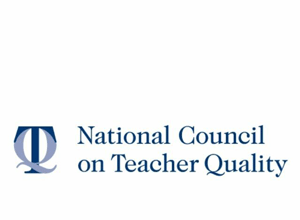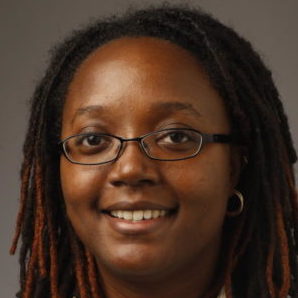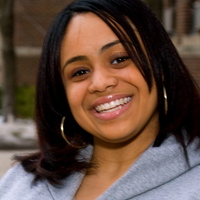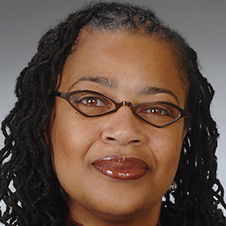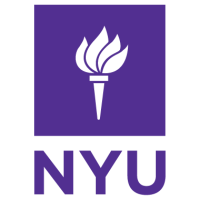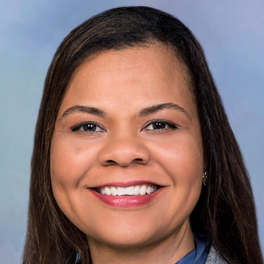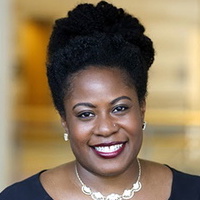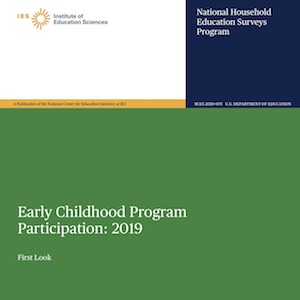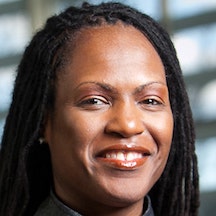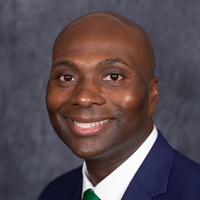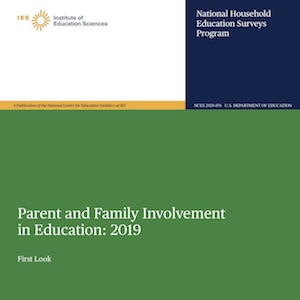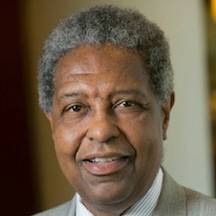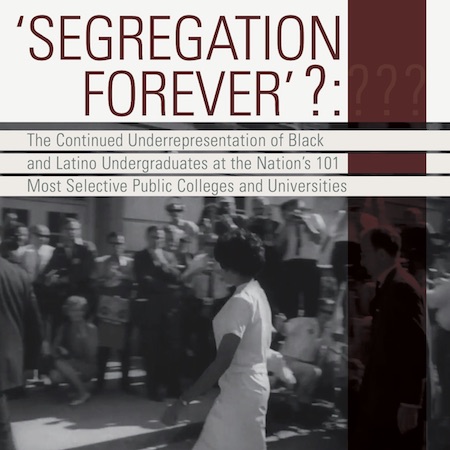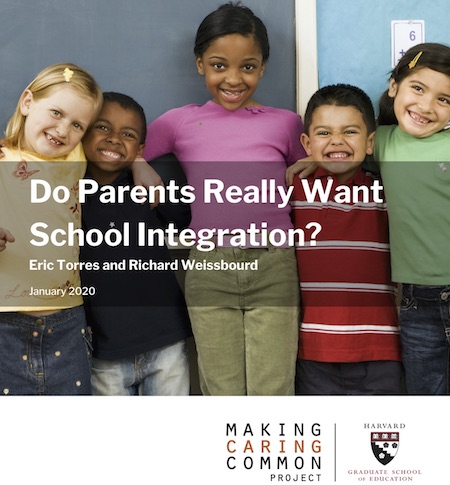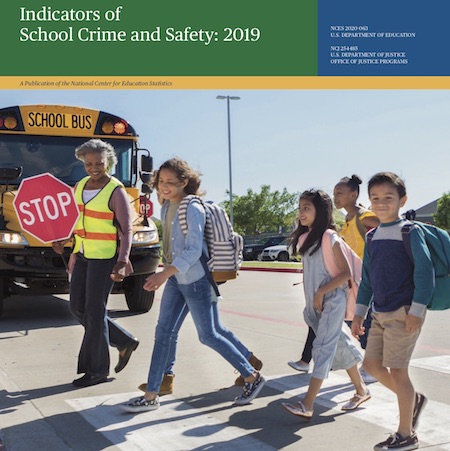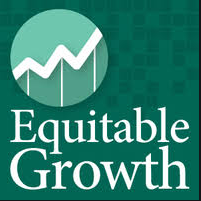Using Virtual Reality to Examine the Racial Attitudes of Educators
The game “Passage Home” puts the player into the first-person perspective of “Ti�any,” a talented and hard-working Black student who is falsely accused of plagiarism by her White female English teacher.
The Psychological Distress Endured by African American Women With Family Members in Prison
A new study led by Evelyn J. Patterson, an associate professor of psychology at Vanderbilt Univerity in Nashville, finds that this high incarceration rate of family members causes higher levels of depressive symptoms and psychological distress among African American women than previously understood.
Blacks Are Underrepresented in Georgia’s Merit-Based College Scholarship Programs
Black students make up 29 percent of the undergraduate college students in Georgia. But they are only 6 percent of all students who receive Zell Miller Scholarships, which provide full tuition to students who qualify.
Does Exposure to Racism Increase the Likelihood of Activism by Black Adolescents?
The researchers found that 84 percent of study participants had experienced at least some form of racism. They found there was a relationship between those who had experienced racism with activism aimed at eliminating racism.
Why Are African Americans So Underrepresented on Business School Faculties?
According to the study, underrepresented minority groups comprise approximately 28 percent of the student body at U.S. business schools but only 7.5 percent of the faculty. Blacks make up just 4.1 percent of the faculty. The authors suggest that the search process is a major factor.
NYU Analysis Finds New Deal Housing Policies Continue to Impact Racial Segregation Today
A new study by Jacob W. Faber, an associate professor of sociology and public service at New York University, finds that housing programs adopted during the New Deal increased segregation in American cities and towns, creating racial disparities that continue to characterize life in the twenty-first century.
Texas Southern University Study Examines Large Rise in Opioid Overdoses in Black Communities
The media narrative for this opioid overdose epidemic is often portrayed as a White, non-Hispanic rural and suburban crisis. But there has been a huge increases in overdoses in Black communities.
New Report Documents Low Level of Numeracy in Adult Black Population
The assessment defines numeracy as “the ability to access, use, interpret and communicate mathematical information and ideas in order to engage in and manage the mathematical demands of a range of situations in adult life."
How Societal Inequality and Racism Impacts Health Disparities in the United States
Lead author Quianta Moore, a fellow in child health of the James A. Baker III Institute for Public Policy at Rice University in Houston, Texas, states that "not only are we not all equally healthy, but we do not all have an equal opportunity to be healthy."
Study Finds a Racial Gap in the Timing of Diagnoses of Autism Disorders
In this study involving 584 African American children at four autism centers across the United States, the average African American child already was almost 5½ years old at the time of diagnosis. White children are diagnosed an average of six months earlier.
New Report Shows How HBCUs Can Achieve Greater Student Success
New research from the Federal Reserve Bank of Atlanta identifies ways historically Black colleges and universities might improve student performance measures —such as graduation rates and graduates’ incomes — relative to predominantly White institutions.
Study Finds That a Black Doctor Lessens the Infant Mortality Rate for Black Babies
New research from the scholars at the University of Minnesota, George Mason University, and Harvard University finds that Black newborns’ in-hospital death rate is a third lower when Black newborns are cared for by Black physicians rather than White physicians.
Racial Differences in Preschool and Daycare Arrangements in the United States
More than two-thirds of African American parents said the cost of daycare was a very important factor in the decision of where to place their child. For Whites, only 47 percent said cost was a very important factor.
Study Finds Black Women With Natural Hair Styles Face Bias in Job Searches
Participants in the study evaluated profiles of Black and White female job applicants across a variety of hairstyles. We found that Black women with natural hairstyles were perceived to be less professional, less competent, and less likely to be recommended for a job interview than other women.
New Department of Education Report Examines Racial Differences in Financing Higher Education
Nearly 92 percent of African Americans who enrolled in higher education in the 2011-12 academic year received some type of financial aid. Some 75 percent of Black students received federal Pell grants compared to 37.7 percent of White students.
Stanford University Scholars Develop a New Way to Measure Racial Segregation
The researcher compiled GPS data from smartphones to analyze movement patterns and compute what they call “experienced segregation” – the amount of people’s exposure to other races as they go about their daily lives.
Is Racial Discrimination a Significant Factor in the Rise of the Black Suicide Rate?
A new study of Black and White collge students led by Jasmin Brooks, a doctoral student at the University of Houston finds that while perceived discrimination creates emotional disturbance for White adults, it is a uniquely painful event for Black adults.
Study Suggests That Smartphones Can Be Used to Fight Racial Health Disparities
New research led by Ledric Sherman, an assistant professor of health and kinesiology at Texas A&M University shows that the accessibility of digital health technologies can begin to bridge the gap between Black male patients and health care providers.
Racial Differences in Parent Involvement in K-12 School Activities
A new study from the U.S. Department of Education finds that parents of White students on average attended 7.8 activities at their child's school. Parents of Black students attended an average of 5.3 events.
Study Finds That Neighborhoods Around North Carolina’s HBCUs Are Healthy Food Deserts
The study, led by Helene Vilme of the School of Medicine of Duke University, found that overall, 332 stores within a 15-minute drive of the campuses were classified as “favorable” for selling healthy food and drink options, compared to 1,082 stores that were classified as “unfavorable.”
Researchers Label North Carolina’s Eugenic Sterilization Program as Genocide
The paper found that North Carolina's eugenic sterilization was apparently tailored to asymptotically breeding-out the offspring of a presumably genetically unfit and undesirable surplus Black population. Sterilizations were aimed at reducing the future Black population - "genocide by any other name," the authors state.
What Happens to African American College Graduates After They Get Their Degree?
Blacks are more likely than Whites to apply to and enroll in postbaccalaureate degree or certificate programs. More than 84 percent of Black students took out loans to pay for their postbaccalaureate programs compared to 59.5 percent of Whites.
UNCF Survey Shows How COVID-19 Impacts Students at Private HBCUs
The United Negro College Fund has released the results of its Pulse Survey of students at member institutions. The survey found that 8 percent of the respondents said they would not return to school if all instruction was online. Another 16 percent said they would be unlikely to return if there was only online instruction.
University Study Finding Persisting Racial Bias by Ridesharing Drivers
A new study, by researchers at Indiana University and American University, shows that biases against underrepresented groups continued to exist after drivers accepted a ride request -- when the rider's picture would then be displayed. This resulted in higher cancellation rates compared to White riders.
Persisting Racial Shortfall in Black Students at Selective State Colleges and Universities
Each of the 101 selective public colleges and universities was given a grade relating to the ratio of Black enrollments compared to the percentage of Blacks in the adult population of the state. More than three quarters of these institutions received a grade of F.
College Students’ Negative Stereotypes About Black Men Persist Based on What They’re Wearing
In an experiment, college students were asked to look at photos of Black male student-athletes in different styles of clothing. Participants judged the models to be more hardworking and more intelligent when they were wearing formal attire than when they wore sweatpants or athletic clothing.
Parents Say They Want School Integration But Their Actions Produce Greater Racial Segregation
A new study finds that a large percentage of parents express support for greater school integration. But the bad news is that when parents have more control over where to send their children to school, their choices make schools more segregated.
Hate Speech and Racial Graffiti Drops Significantly in the Nation’s Schools
In 2017, 7.4 percent of Black students reported being abused by hate-related words in school. In 1999, the figure was 16.6 percent. In 2017, 24.8 percent of Black students said they had seen race-related graffiti at school, compared to 38 percent in 1999.
Study Finds That Prospective Teachers Perceive Black Children as Angry When They Are Not
Participants in the study were 1.36 times more likely to exhibit racialized anger bias against Black children than against White children, meaning that they were that much more likely to incorrectly view a Black child as angry when the child was not actually making an angry facial expression.
How a Death in the Family Impacts Black Students’ Path to Higher Education
Black adolescents and young adults were about 2-3 times more likely to have lived through the death of a close family member than White participants. Young adults, who were college-aged when a sibling or parent died, were about half as likely to graduate from college.
Eliminating the Racial Gap in Educational Readiness in Preschool Children
The Rutgers University study found that by the time they enter kindergarten, Black children are on average nearly nine months behind in math and almost seven months behind in reading compared to their White non-Hispanic peers.
Study Led by Scholar at the University of Georgia Finds Racial Gap in Patent...
The researchers examined more than 4 million patent applications that were filed between 2000 and 2015. Using data analysis to determine the probability of inventors' names being from a particular racial or ethnic group, the researchers determined that inventors from underrepresented groups were less likely to be approved.
New Federal Reserve Bank of New York Study Examines Student Debt by Race
The researchers identified zip codes that are majority Black, majority White, and majority Hispanic. They then examined college enrollment rates of the population in those zip codes as well as student debt levels, and default rates on student loans.
Study Finds Few References to Black Biologists in Leading Textbooks in the Field
The researchers from Auburn University, the University of South Alabama, and Michigan State University found that while Blacks are 14 percent of the U.S. population and 7.7. percent of the college students in biology, Blacks were only 0.6 percent of the scientists featured in biology textbooks.
Black Homeowners Face Higher Property Taxes Than Their White Peers
Black-owned homes were assessed at higher values compared to their actual sale price, than was the cases for homes owned by Whites. The data also showed that Black families paid on average 13 percent more in property taxes than White families with similarly valued properties.
Texas A&M University Study Documents Race as a Major Factor in Police Use of...
The study found that White police officers are far more likely to use force than their non-White counterparts, especially in minority neighborhoods. White officers are five times as likely as non-White officers to fire a gun in predominantly Black neighborhoods, according to the study.
